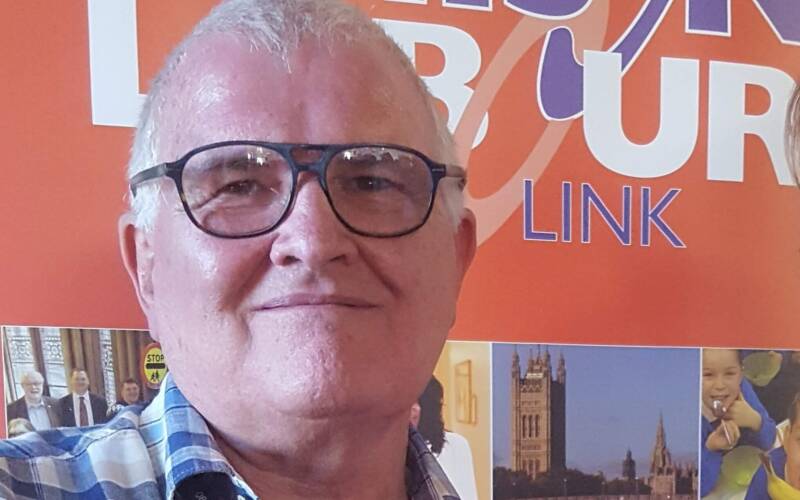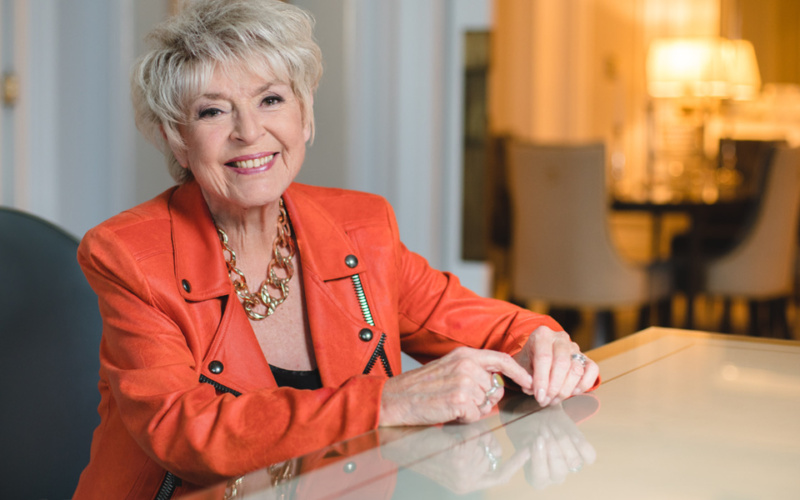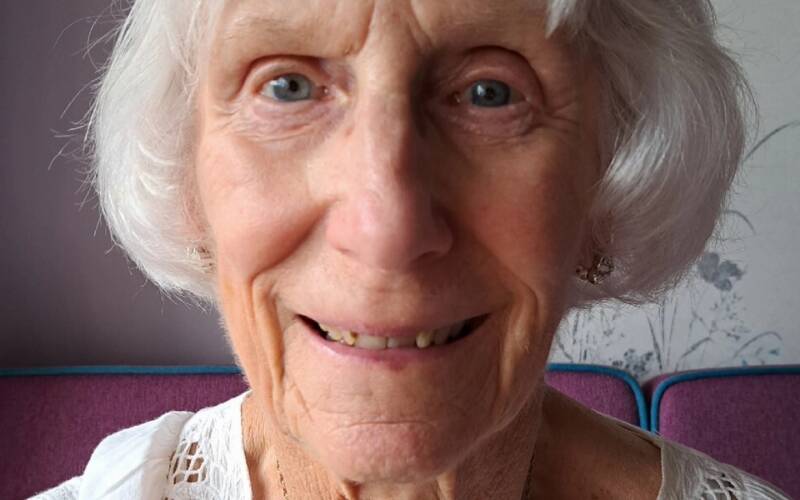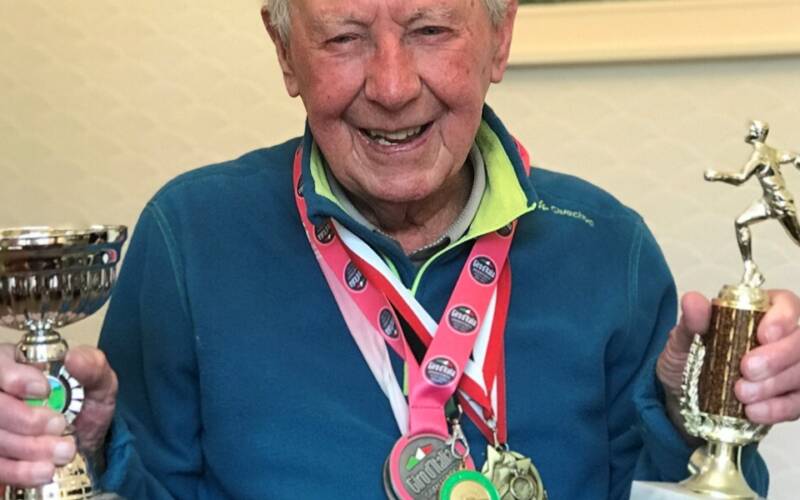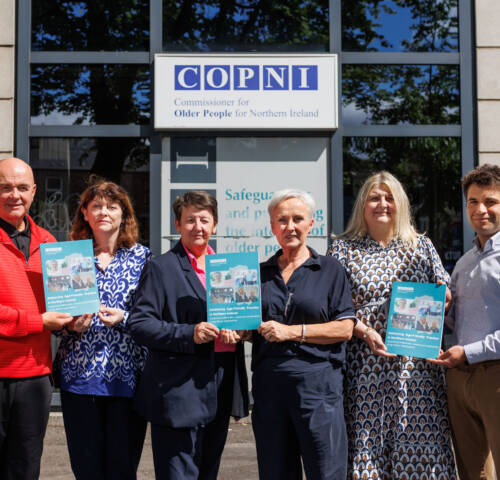Words of Wisdom with... Martin Gallagher
What age are you and what age do you feel?
68 now, will be 69 on the 24th July, I feel 20 years younger.
What was your life like growing up?
I had a really great life as a youngster growing up in the Rosemount/Park Avenue area of Derry. It was a mixed community where people got on together regardless of religion. People went in and out of each others houses, borrowed sugar or milk or just called on each other to see if everyone was OK. My parents lived with my Aunt (who was a great lady) after they married, in No 10 Upper Nassau Street. Behind my Aunts house it was nothing but green fields for as far as the eye could see. Down the field there was a burn which ran from the reservoir at Rosemount for a very long stretch down to as far as the Glen Road. I together with my friends fished for Stickle Backs (small fish) from one end to the other using onion net bags. I was 14 when the troubles started in NI and the civil rights of people in the region became a serious issue. During the troubles I became a member of the Order of Malta (first aid org) in Derry. When the peace process came about and an end to the troubles was in sight this meant a lot as once again there was a chance for all communities to start working together for a better way forward for the future. I married on the 4th July 1981 to a Shantallow woman and we had 2 children Christopher and Martin. Sadly we lost our eldest boy Christopher to Malaria on the 20th May 2006 while he was travelling round the world after he finished up at Queens University. Today, as a family we keep his memory alive by doing charity work with the local charity Children in Crossfire by putting basic health care and water in place for young children in his memory. I volunteer for the charity by doing ‘Santa’s Big Fundraiser Appeal’ over the Christmas period each year at the Guildhall in Derry.
What did/ do you work as?
Because of my first aid background I always wanted to work in a job that involved caring for another person. In 1973 I began my career as a nursing assistant in mental health and worked at Gransha Hospital on the outskirts of Derry. There I had the opportunity to work with people from both sections of the community and made many new friends. I joined up with one of the unions in the hospital called Confederation of Health Service Employees (COHSE). In 1974 I began my 3 year training as a mental health nurse. I moved on after my training to work in Stradreagh Hospital, caring for people with a learning disability, the job was very rewarding and there were great opportunities to build on my skills, knowledge and experience throughout my working career. I wanted to become more than a member of COHSE and became a Stewart in the union to make a stand against injustice in the workplace. In 1993 three unions in NI COHSE, NUPE & NALGO merged to form the biggest public service union in the whole of the UK, namely UNISON. As a member and stewart in UNISON I was about to enhance my skills, knowledge and experience. The health, safety & welfare of the staff and the clients was a main priority for me in the workplace and I became a Health & Safety Rep. This allowed me to get into places where I could never get into before, especially to carry out inspections on behalf of the membership. It was a great experience and I learned a great deal until I retired in 2010.
What has been the best age of your life and why?
The best age for me was when I was 25years (less than 2 weeks away from my 26th Birthday) when I got married to my beautiful wife Mary on the 4th July 1981. We both have our wedding day inscribed on the inside of our rings. We went on to have 2 beautiful children as mentioned earlier. We recently celebrated our 43rd Wedding Anniversary and live a very happy life together.
What is the biggest misconception about getting older/ older people?
The biggest misconception for me is the way in which society tends to look down on older people rather than look at the way older people have contributed to society down through the years. It is estimated that older people whether it’s through child care or voluntary work or working beyond retirement age make a sincere contribution to society by saving the government over £250 million per annum. All their working life older people have gained skills, knowledge & experience that have helped them get to where they are in society today. For me it is important that society recognises the work of older people and the contribution they make to everyday life.
What is the best thing about getting older?
The great thing about getting older for me is the freedom we have to use our voice and share our skills, knowledge and experiences in life by becoming part of a group or organisation. Down through recent years organisations have grown to bring the young and the elderly together with schools taking children to care homes to interact with older people and share their life through song and laughter. This interaction creates a friendly atmosphere and both generations are learning from each other. The freedom to do what we like, go where we like is something older people treasure as once prior, they would have been tied down with work, household duties and looking after their children. There are many groups around in the region that cater for the needs of older people but I feel more needs to be done to develop a governmental strategy.
What do you hope to see for the future of older people in Northern Ireland?
I would like to see older people having a future where society is able to offer them more access to goods, facilities & services that caters for their needs as they become part of our ageing communities across the region. I would like to see both generations work together for a better way forward and share information that would prove useful to both sides. Older people are living longer and are working beyond retirement age as a means of keeping in touch with the outside world. As we head towards an ageing population, deterioration in our health starts to have an impact on us all. The future of Health & Social care is at stake with staff shortages and lengthy waiting lists giving real cause for concern, especially for the future of older people as many are being left in corridors in overwhelmed A/E units and receiving little or no attention. Many older people have passed away waiting on treatment. The Department of Health has got to treat older people with the dignity and respect they deserve in their last years of life. They also have to address the funding shortfall in Health & Social Care and put proper planning in place together with more carers in place to address the growing ageing population in society.
What advice would you give to your younger self?
If you are lucky to have a good life, a good job and lucky to retire then take up with an older peoples/pensioners group/organisation and campaign for the dignity, respect and the rights of all. Listen to what older people/pensioners have to say as they have gained a lot of skills, knowledge and experience through their working and married lives, growing up in society. They are the pillar of society.
Final words?
Since I retired in 2010 and I carried on my union membership by becoming a retired member of UNISON’s Retired Members Forum NI in 2011. It was the best thing I did as it has opened many doors for me which I would never have got a foot inside in the past. I am currently on a mission to campaign for a better NHS and the rights of pensioners and older People. I also represent pensioners/older people on our local Community Safety Team and speak up for the older population in the greater area, working with different organisations to produce a better future for all in our communities.
